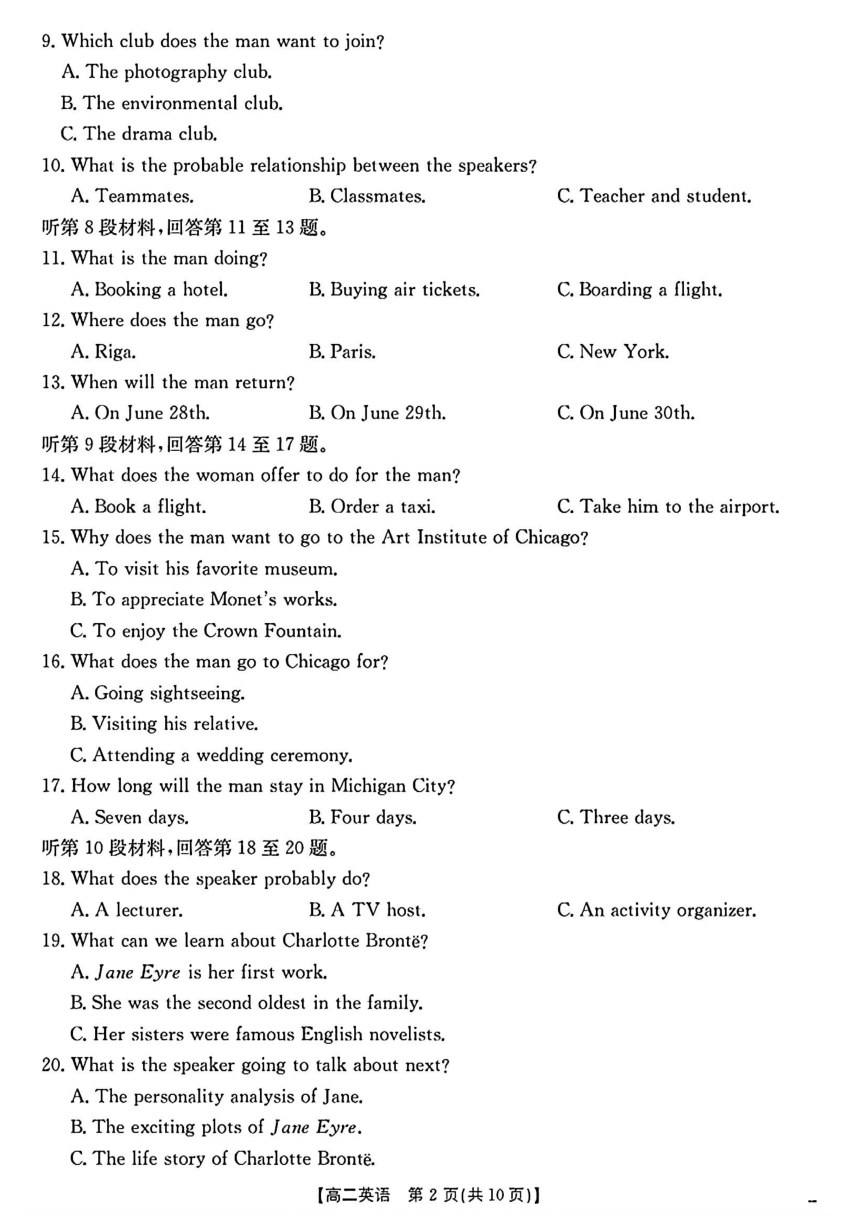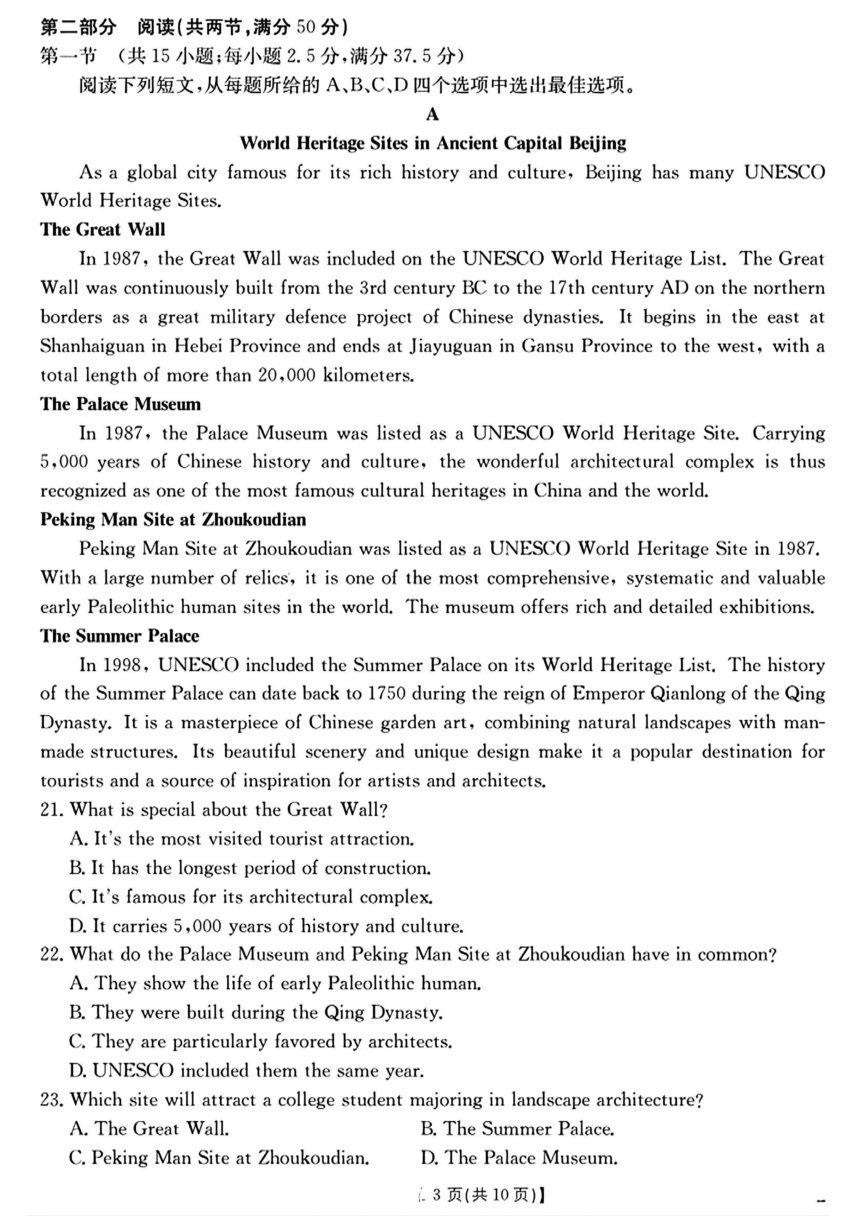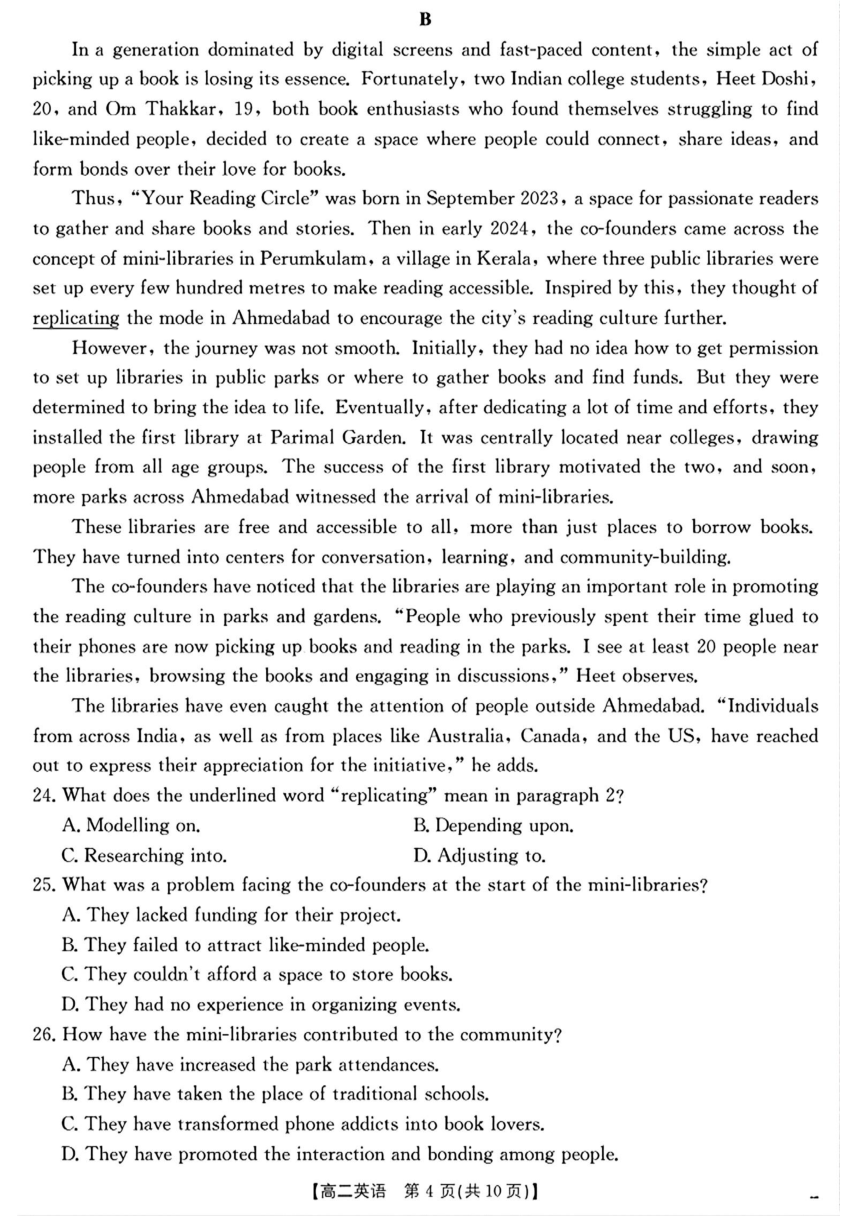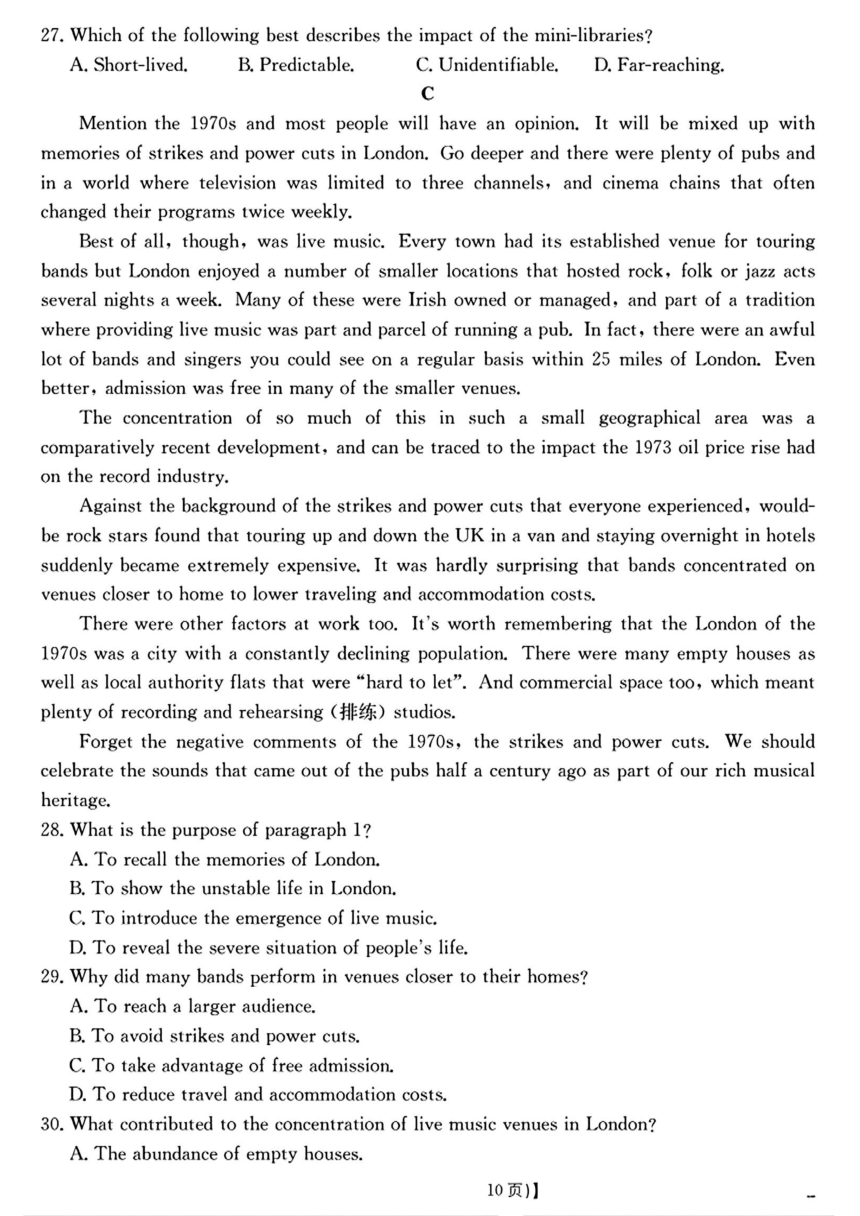陕西省2024-2025学年高二下学期期末检测 英语试卷(PDF版,含答案,无听力原文及音频)
文档属性
| 名称 | 陕西省2024-2025学年高二下学期期末检测 英语试卷(PDF版,含答案,无听力原文及音频) |  | |
| 格式 | docx | ||
| 文件大小 | 7.1MB | ||
| 资源类型 | 教案 | ||
| 版本资源 | 通用版 | ||
| 科目 | 英语 | ||
| 更新时间 | 2025-07-06 15:09:41 | ||
图片预览





文档简介
27.Which of the following best describes the impact of the mini-libraries
A.Short-lived.
B.Predictable.
C.Unidentifiable.D.Far-reaching.
C
Mention the 1970s and most people will have an opinion.It will be mixed up with
memories of strikes and power cuts in London.Go deeper and there were plenty of pubs and
in a world where television was limited to three channels,and cinema chains that often
changed their programs twice weekly.
Best of all,though,was live music.Every town had its established venue for touring
bands but London enjoyed a number of smaller locations that hosted rock,folk or jazz acts
several nights a week.Many of these were Irish owned or managed,and part of a tradition
where providing live music was part and parcel of running a pub.In fact,there were an awful
lot of bands and singers you could see on a regular basis within 25 miles of London.Even
better,admission was free in many of the smaller venues.
The concentration of so much of this in such a small geographical area was a
comparatively recent development,and can be traced to the impact the 1973 oil price rise had
on the record industry.
Against the background of the strikes and power cuts that everyone experienced,would-
be rock stars found that touring up and down the UK in a van and staying overnight in hotels
suddenly became extremely expensive.It was hardly surprising that bands concentrated on
venues closer to home to lower traveling and accommodation costs.
There were other factors at work too.It's worth remembering that the London of the
1970s was a city with a constantly declining population.There were many empty houses as
well as local authority flats that were "hard to let".And commercial space too,which meant
plenty of recording and rehearsing (studios.
Forget the negative comments of the 1970s,the strikes and power cuts.We should
celebrate the sounds that came out of the pubs half a century ago as part of our rich musical
heritage.
28.What is the purpose of paragraph 1
A.To recall the memories of London.
B.To show the unstable life in London.
C.To introduce the emergence of live music.
D.To reveal the severe situation of people's life.
29.Why did many bands perform in venues closer to their homes
A.To reach a larger audience.
B.To avoid strikes and power cuts.
C.To take advantage of free admission.
D.To reduce travel and accommodation costs.
30.What contributed to the concentration of live music venues in London
A.The abundance of empty houses.
10页)】
A.Short-lived.
B.Predictable.
C.Unidentifiable.D.Far-reaching.
C
Mention the 1970s and most people will have an opinion.It will be mixed up with
memories of strikes and power cuts in London.Go deeper and there were plenty of pubs and
in a world where television was limited to three channels,and cinema chains that often
changed their programs twice weekly.
Best of all,though,was live music.Every town had its established venue for touring
bands but London enjoyed a number of smaller locations that hosted rock,folk or jazz acts
several nights a week.Many of these were Irish owned or managed,and part of a tradition
where providing live music was part and parcel of running a pub.In fact,there were an awful
lot of bands and singers you could see on a regular basis within 25 miles of London.Even
better,admission was free in many of the smaller venues.
The concentration of so much of this in such a small geographical area was a
comparatively recent development,and can be traced to the impact the 1973 oil price rise had
on the record industry.
Against the background of the strikes and power cuts that everyone experienced,would-
be rock stars found that touring up and down the UK in a van and staying overnight in hotels
suddenly became extremely expensive.It was hardly surprising that bands concentrated on
venues closer to home to lower traveling and accommodation costs.
There were other factors at work too.It's worth remembering that the London of the
1970s was a city with a constantly declining population.There were many empty houses as
well as local authority flats that were "hard to let".And commercial space too,which meant
plenty of recording and rehearsing (studios.
Forget the negative comments of the 1970s,the strikes and power cuts.We should
celebrate the sounds that came out of the pubs half a century ago as part of our rich musical
heritage.
28.What is the purpose of paragraph 1
A.To recall the memories of London.
B.To show the unstable life in London.
C.To introduce the emergence of live music.
D.To reveal the severe situation of people's life.
29.Why did many bands perform in venues closer to their homes
A.To reach a larger audience.
B.To avoid strikes and power cuts.
C.To take advantage of free admission.
D.To reduce travel and accommodation costs.
30.What contributed to the concentration of live music venues in London
A.The abundance of empty houses.
10页)】
同课章节目录
